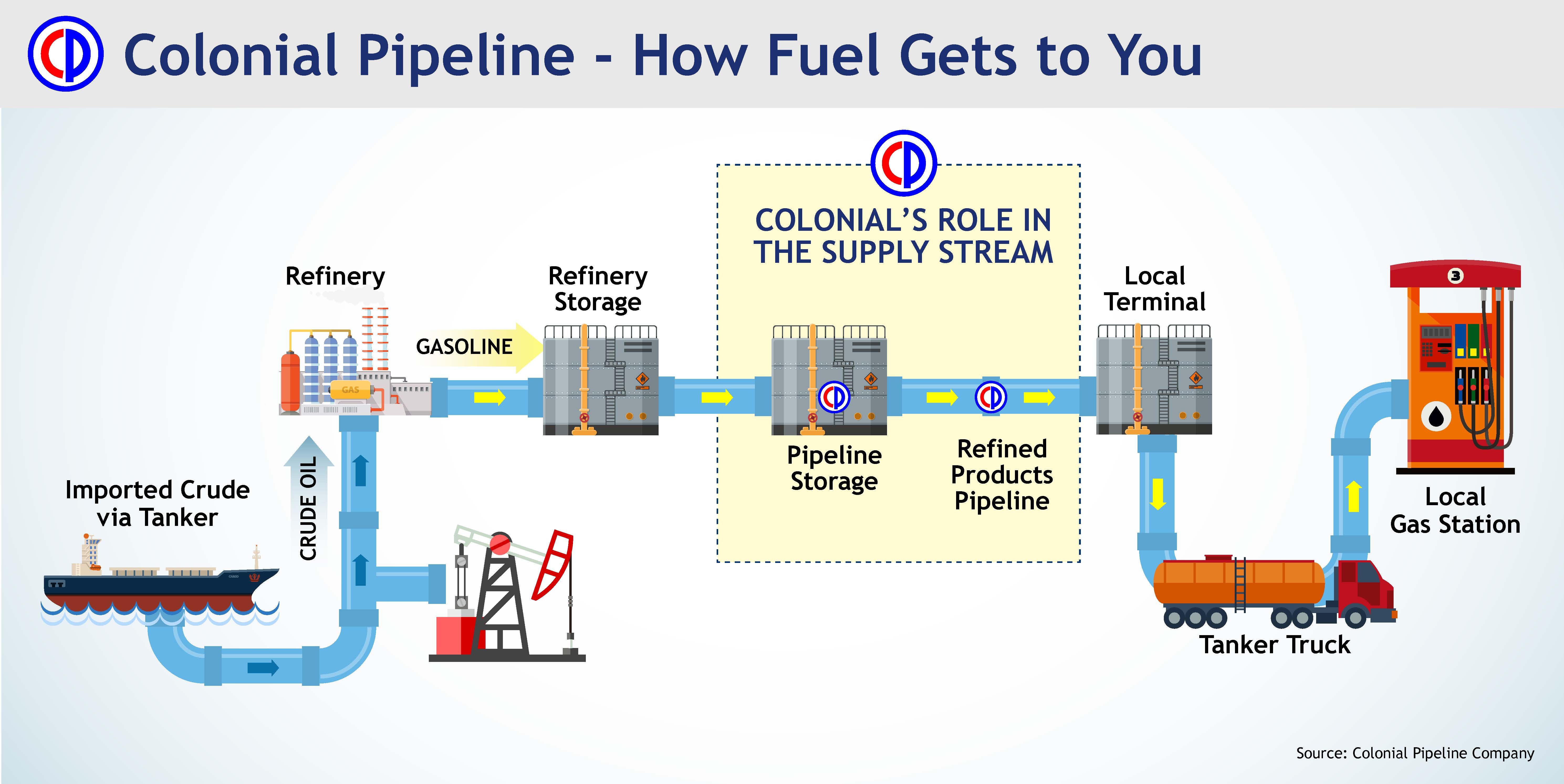How It Works: Refinery Connections & Scheduling Shipments
A pipeline is a simple concept in the broadest of terms, but when it comes to planning, building and operation, it is a highly engineered system – a modern marvel. Knowing who can ship product and how it enters the pipeline is a first step towards understanding what it takes to operate the system, especially for those who have never worked in the field.
Colonial’s 5,500-mile pipeline network is connected to refineries on the Texas Gulf Coast, where the journey of fuels from petroleum companies to end users in the Southeast and along the Eastern Seaboard begins.
Colonial’s connections to various refineries are completed to exacting federal government specifications. The pipes have proven to be safe and effective workhorses in the system for more than a half-century. Colonial’s refinery connections have withstood powerful hurricanes, flooding (Hurricane Harvey being the most recent example) and just about anything Mother Nature has thrown at them.
Colonial’s role in the fuel system
Hurricane Harvey brought floodwaters that caused the shutdown of many refineries in Southeast Texas that connect to Colonial. Colonial does not own any refined petroleum products. We transport refined petroleum products from refineries to terminals, where the product is eventually delivered to gas stations, usually via truck. Often there is confusion amongst the public about Colonial’s role in our energy infrastructure. If refineries are not operating, the supply of refined petroleum products like gasoline that Colonial can transport is limited.

Who can use the Colonial Pipeline system?
Like telephone and electric lines, interstate pipelines are federally regulated transport systems that are accessible to any company that meets specific criteria. For instance, if a new refining facility is built along the network, and its operator meets certain government standards indicating they meet qualifications to ship petroleum products, it is Colonial’s responsibility to make connections available.
The flow of petroleum products
The flow of product along the Gulf Coast starts with commodity exchange traders and the buying and selling of batches. Traders obtain minimum tenders of 25,000 barrels, which is how petroleum is measured and traded.
Colonial routinely provides considerable lead time to our customers so that they can stage their products in time to lift into our system. That’s how we help our customers in “preparing” their barrels for shipment.
According to Steve Brazeale, senior scheduler in Scheduling and Shipper Support, “once barrels are bought, it falls to Colonial’s scheduling department to work with refineries in preparing the barrels for shipment by a specific date and time.
“That’s an integral part of the process we perform in the scheduling department,” Brazeale added. “We create the schedule and inform the refineries, tanker parties, customers and others when we expect to receive the product.